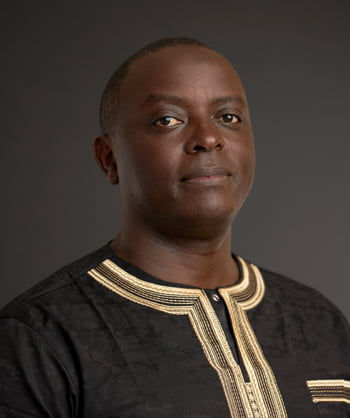


St. Mary's Hall S355
Telephone: 617-552-4846
Email: kalemba.kizito@bc.edu
Surveillance Media and Contemporary Society, Black Popular Culture, Rhetorical Tradition
I earned my Ph.D. from the Department of Communication & Film at the University of Memphis before joining the Communication Faculty in 2021. In my scholarly pursuits, I navigate the intricate landscape of global borders, focusing my exploration on Black global studies and drawing inspiration from my African and Afro-diasporic heritage. My commitment is dedicated to unraveling the multifaceted dimensions of borders as transnational and global apparatuses of biopolitics. Employing an interdisciplinary approach, I examine the complex politics surrounding borders and their profound impact on Blackness. At the core of my investigation lies the recognition that blackness, operating at the dermal level, functions as the ultimate border within the African and Afro-Diaspora experience. Methodologically, I utilize both traditional rhetorical and textual approaches alongside innovative Black methodologies.
Echoing Paul Robeson's sentiment, "I make no separation of my work as an artist and my work as a human being," I consider this profound statement a guiding principle. My teaching and writing transcend mere academic exercises; they serve as potent political practices capable of provoking profound contemplation about equality, social justice, and a genuine appreciation for diverse cultural expressions that enrich the human experience.
As a member of the Communication department and a faculty affiliate in the International Studies Program, my engagement spans a diverse range of courses. While my class schedule covers subjects such as Black Popular Culture, Theories of Culture and Identity, Surveillance, Media, and Contemporary Society, Rhetorical Tradition, Public Speaking, and The Social Construction of Travel, my teaching and research interests extend beyond these boundaries. Continuously seeking new avenues to explore, I actively engage with students, fostering intellectual growth, and nurturing critical thinking as we grapple with the fundamental questions of our time and how they inform different lived experiences